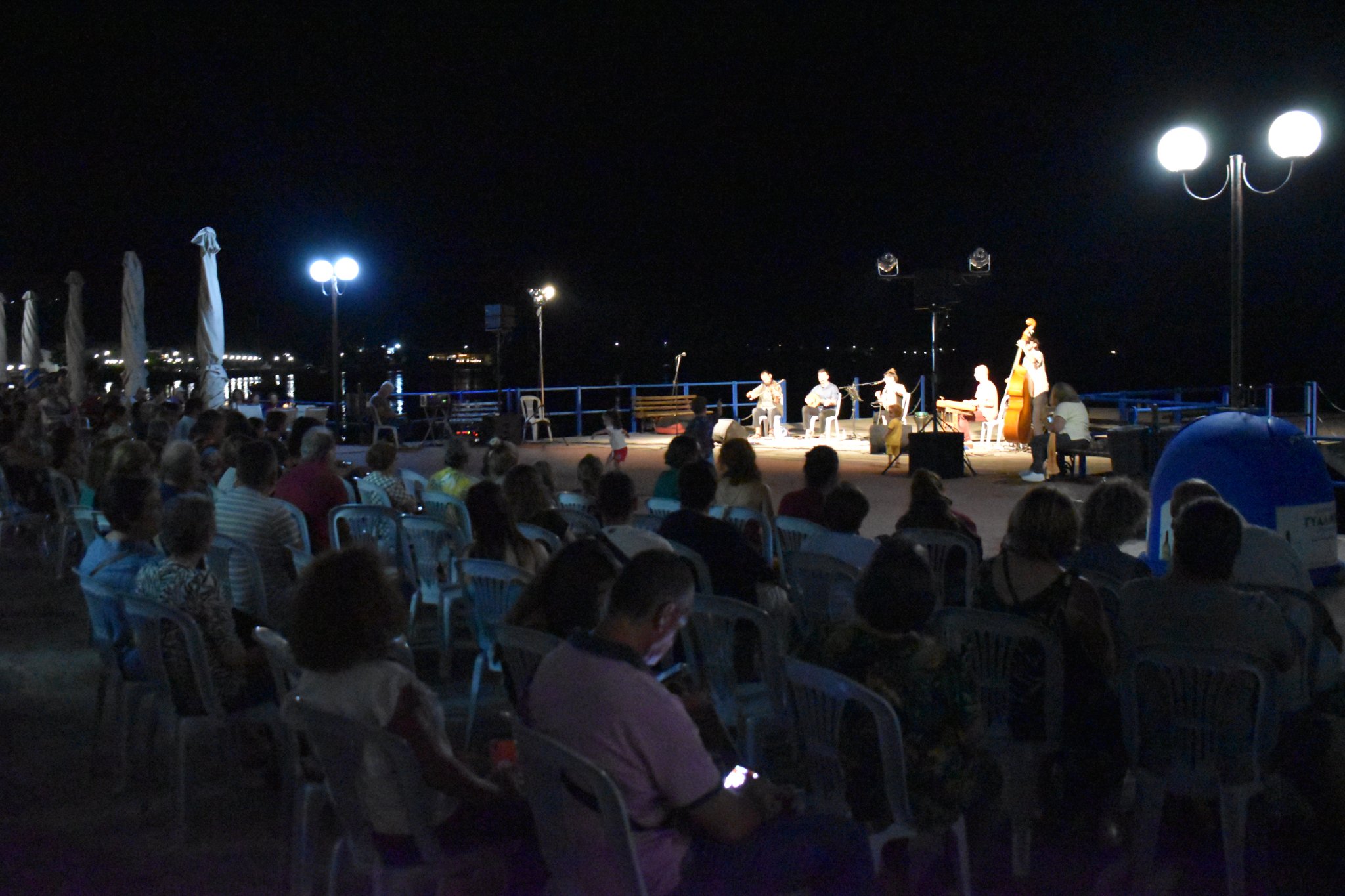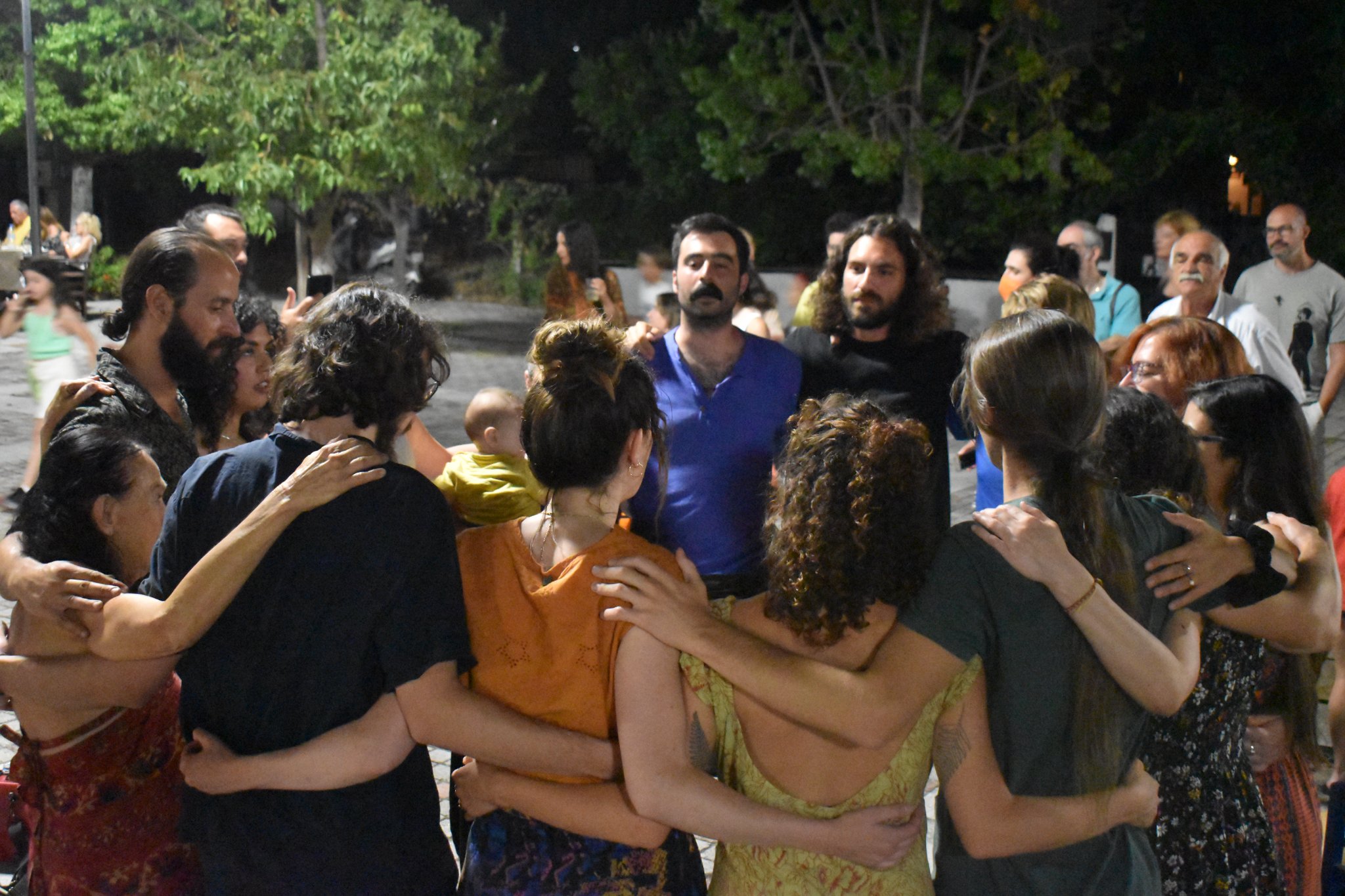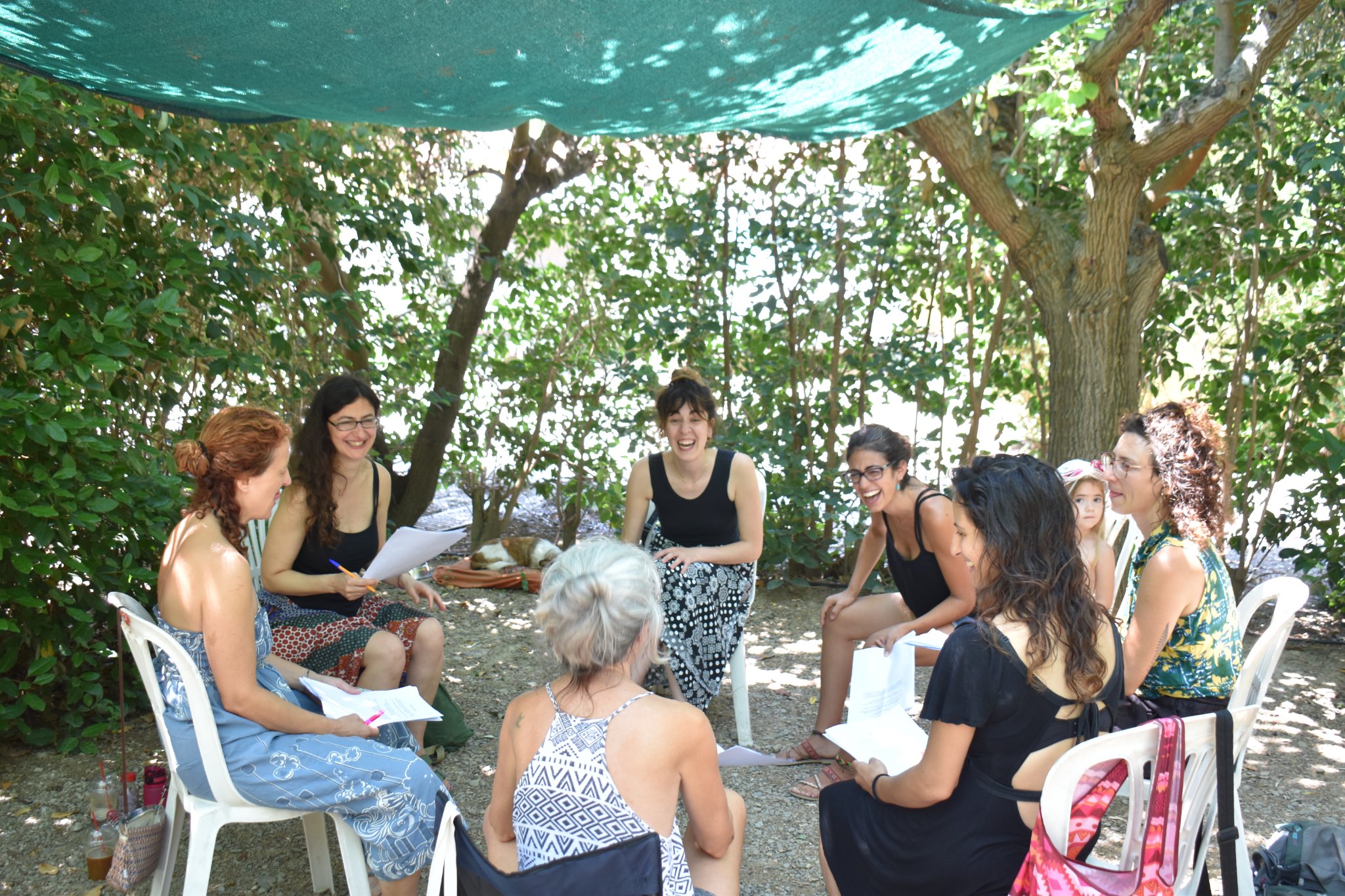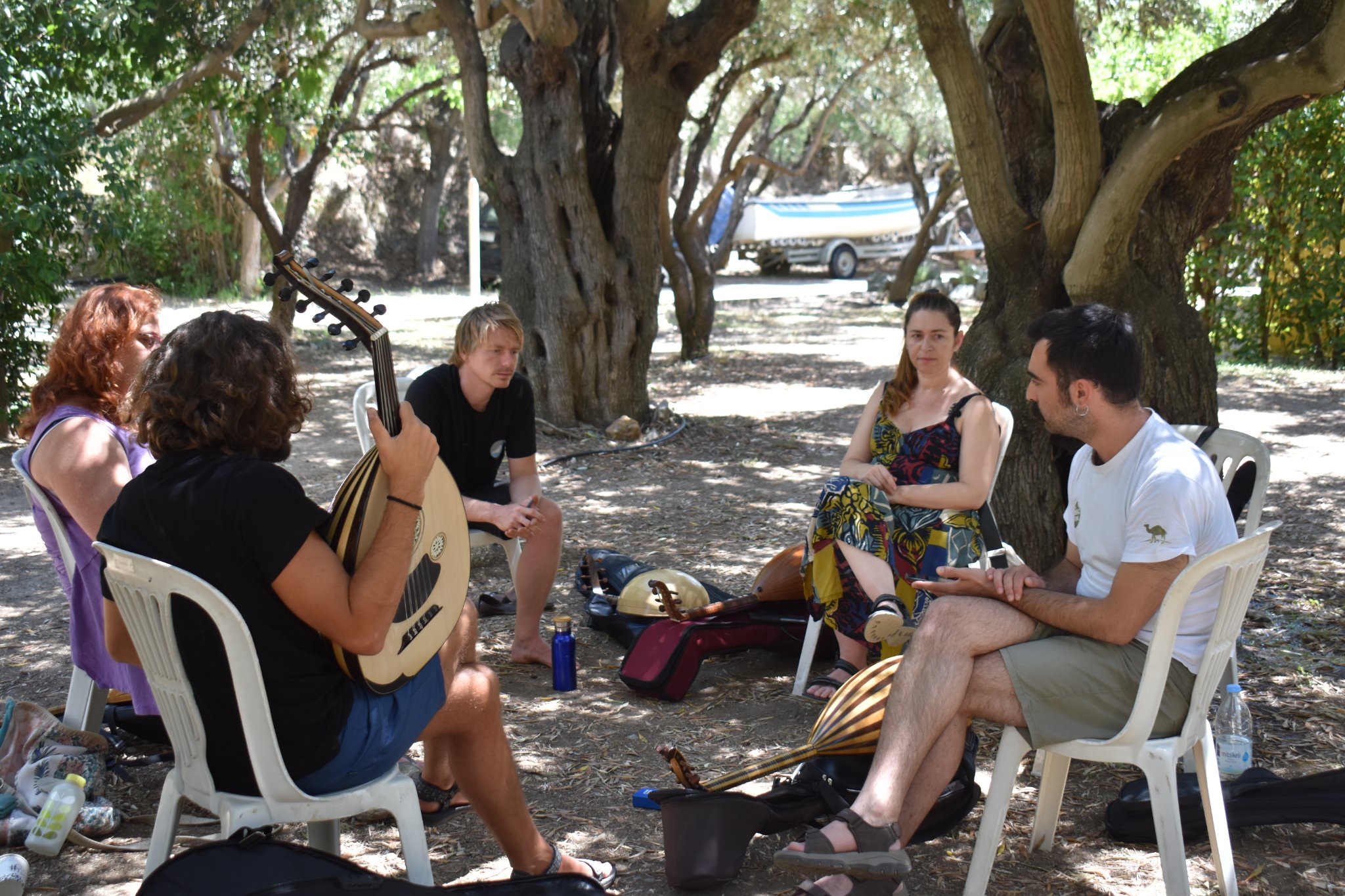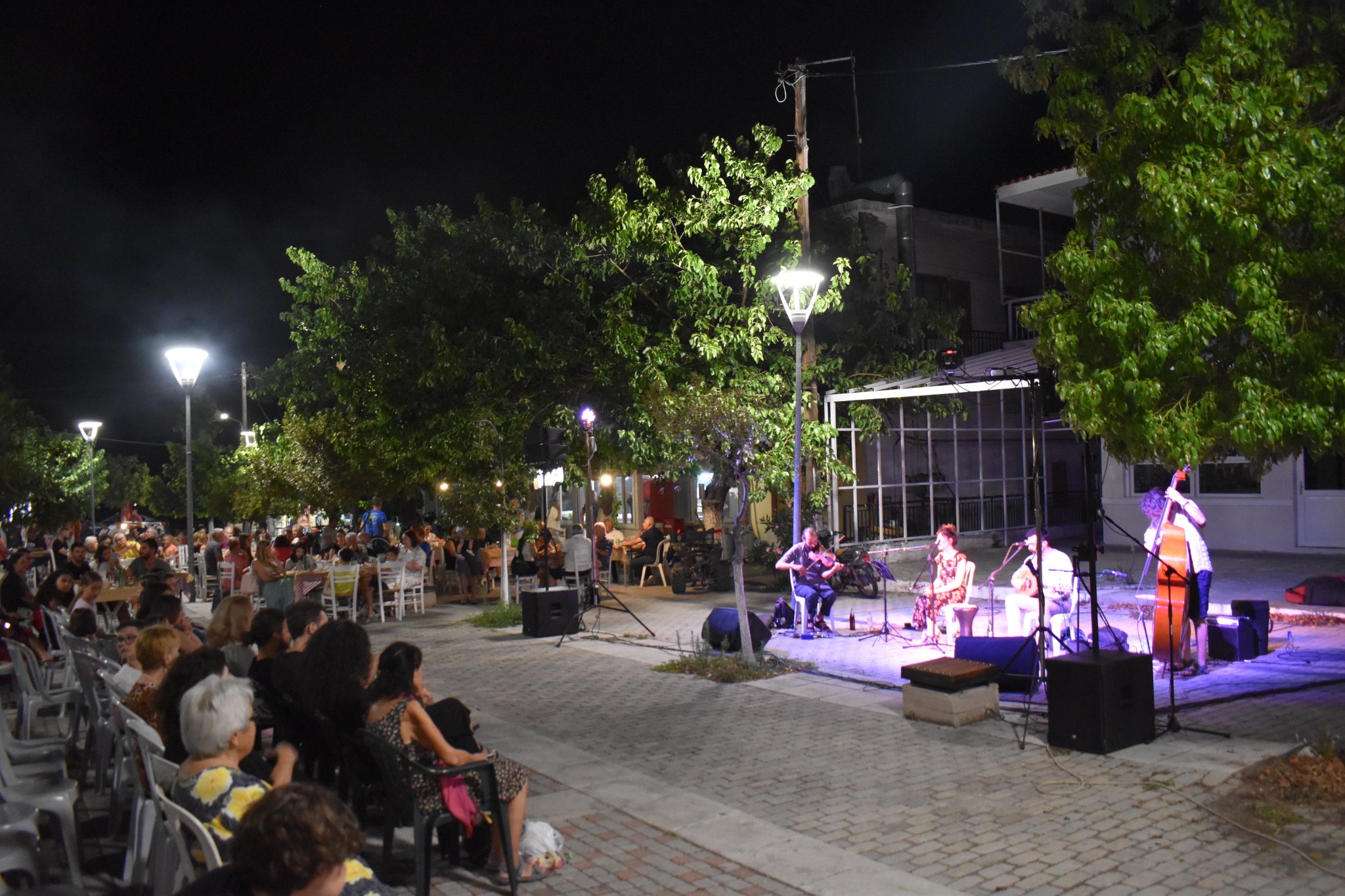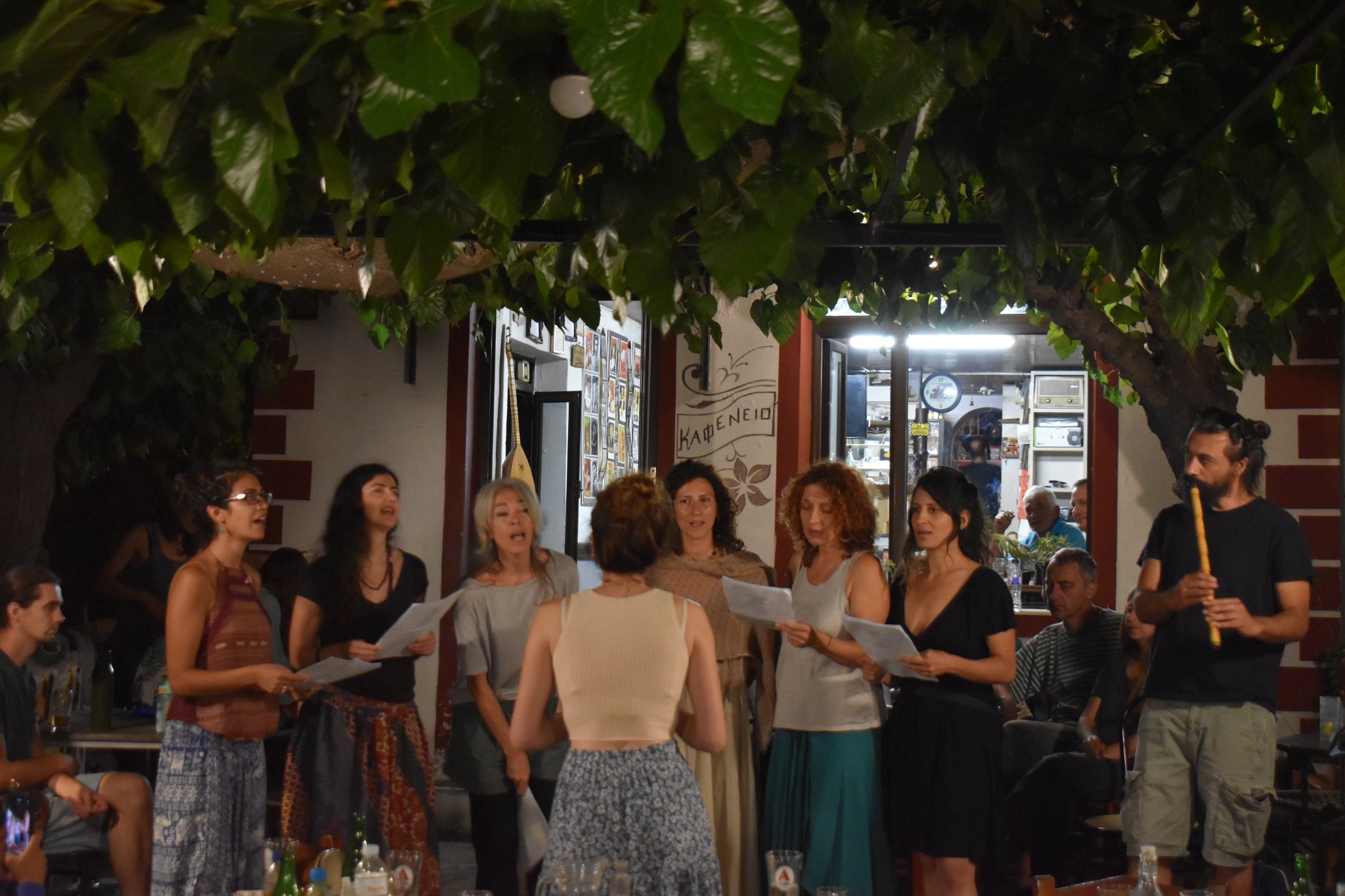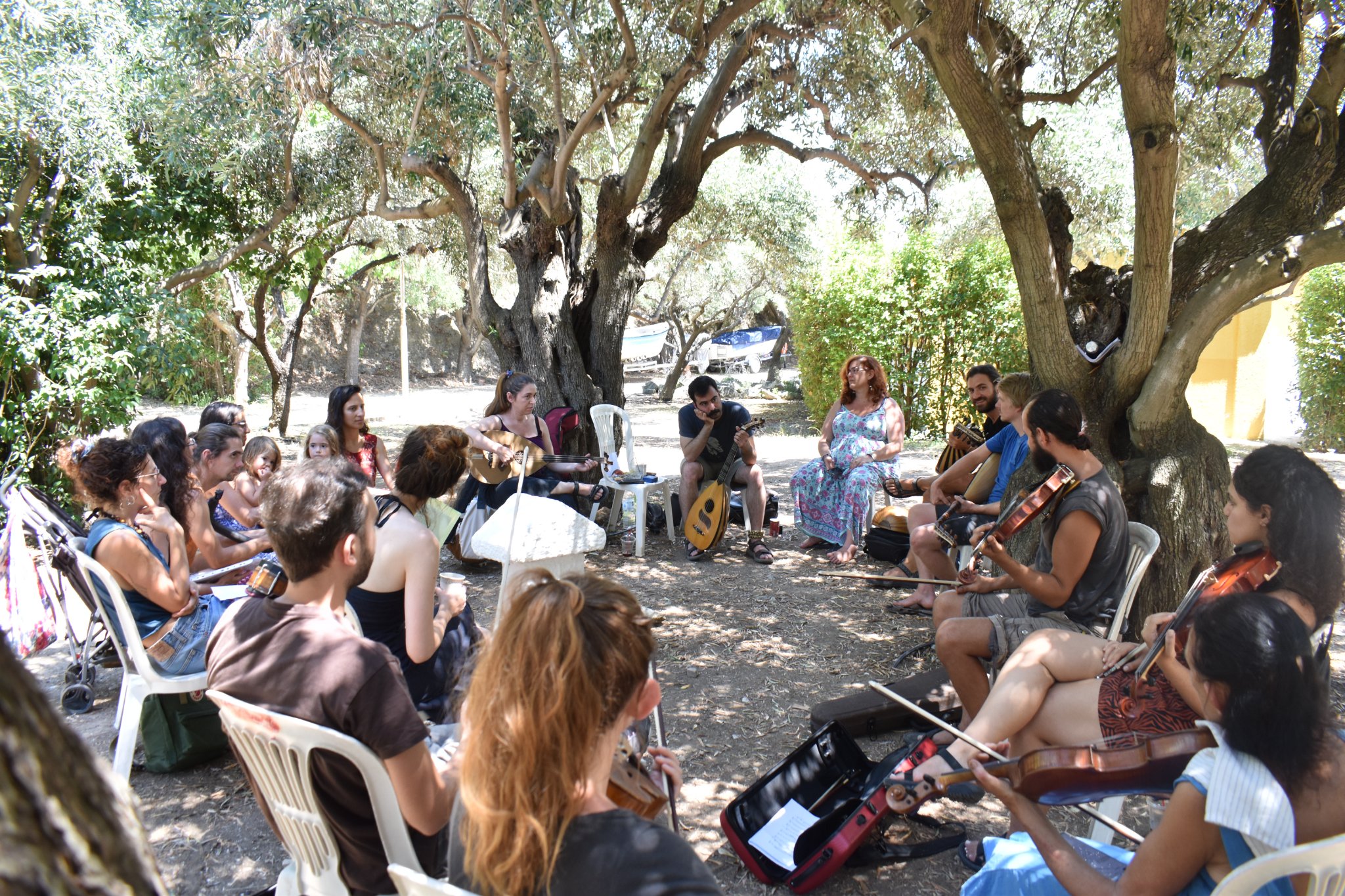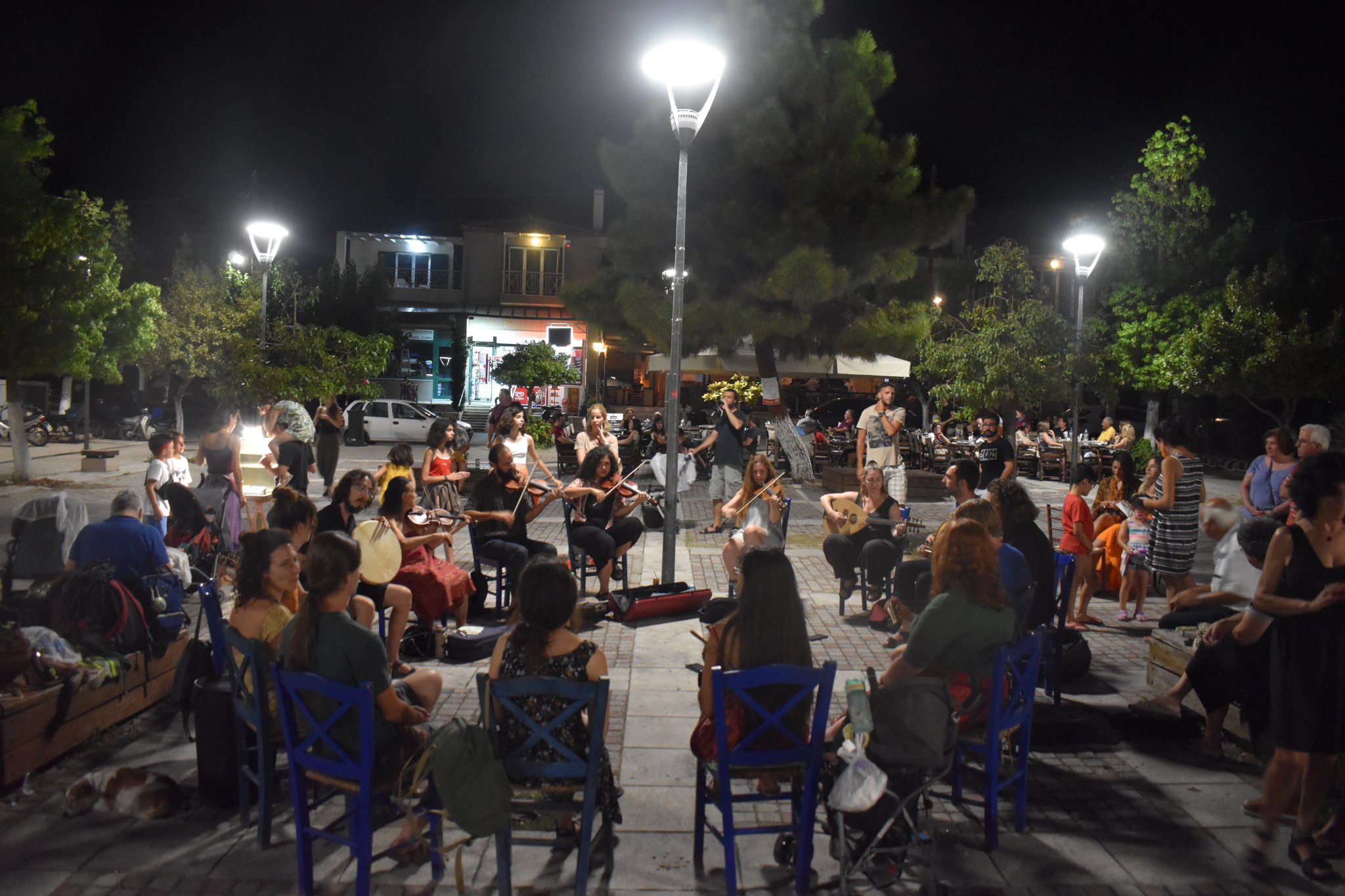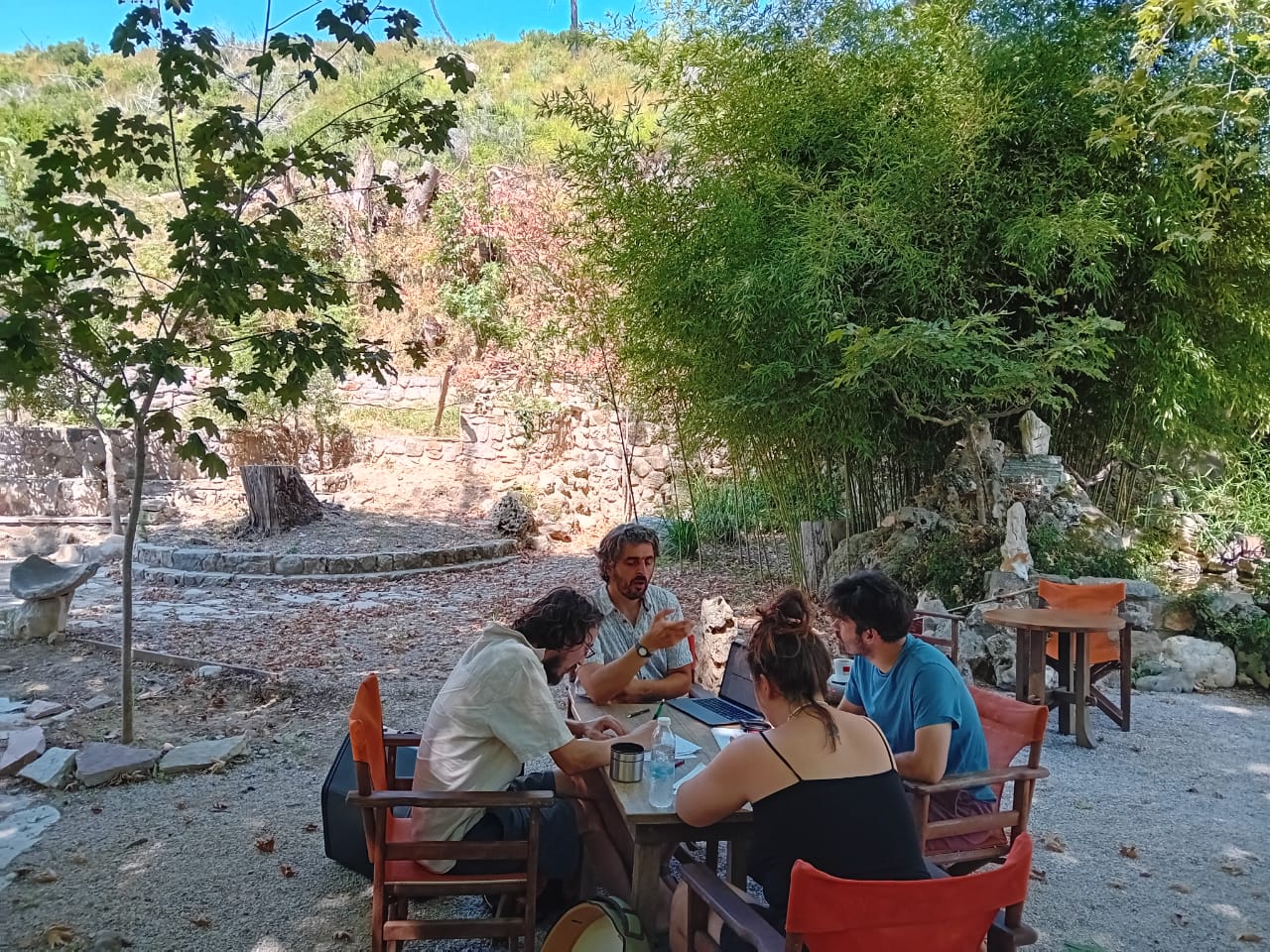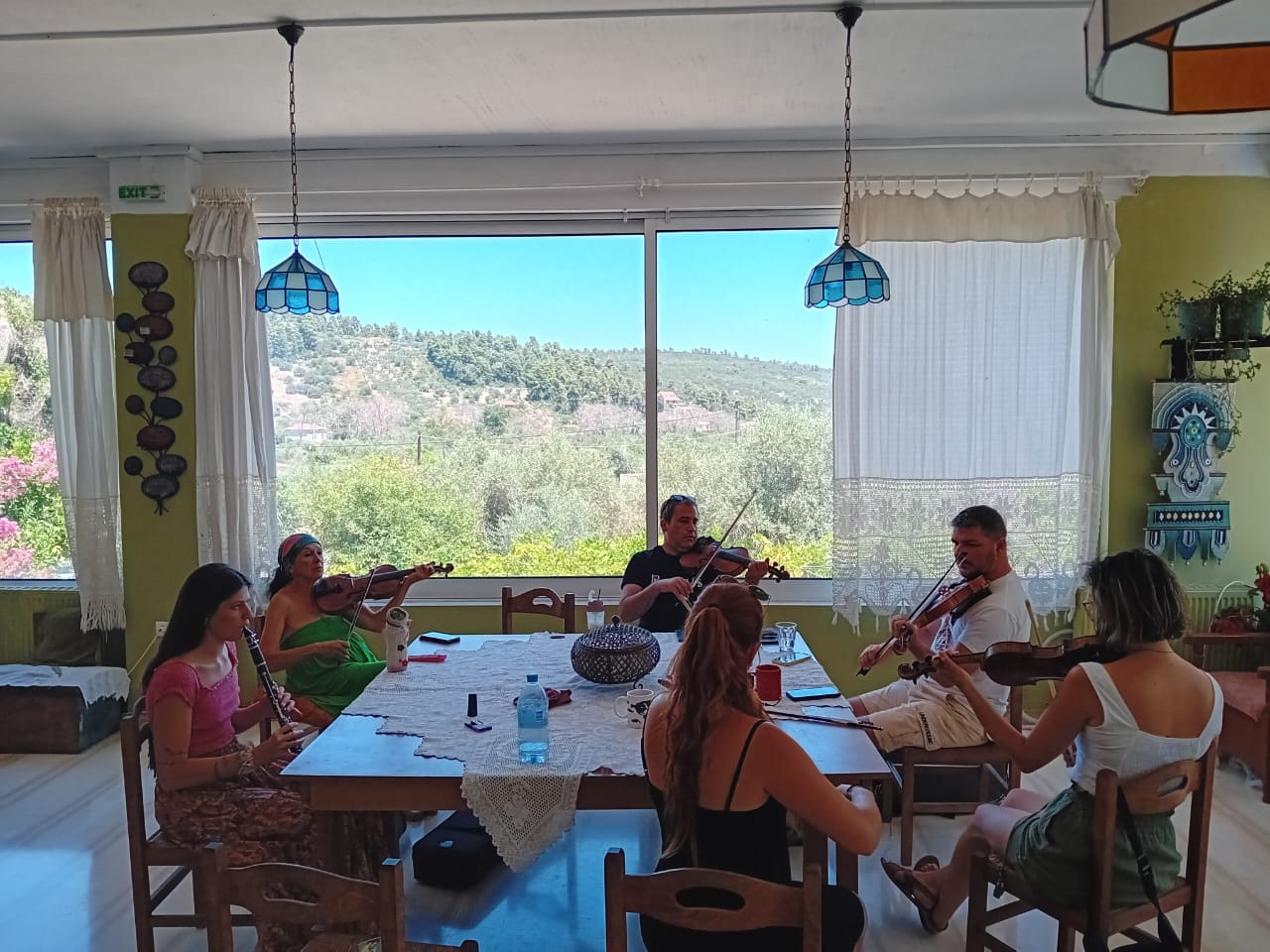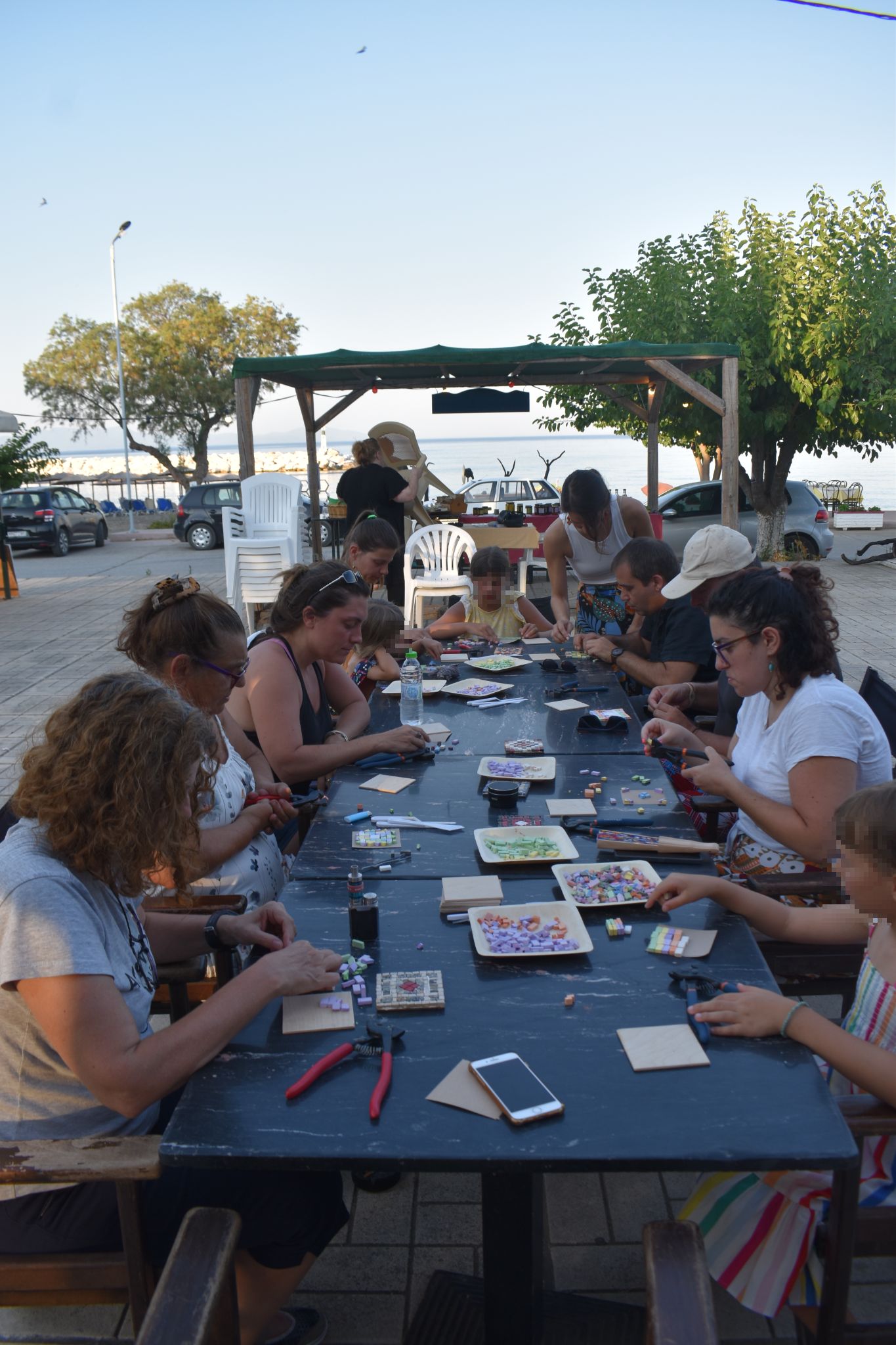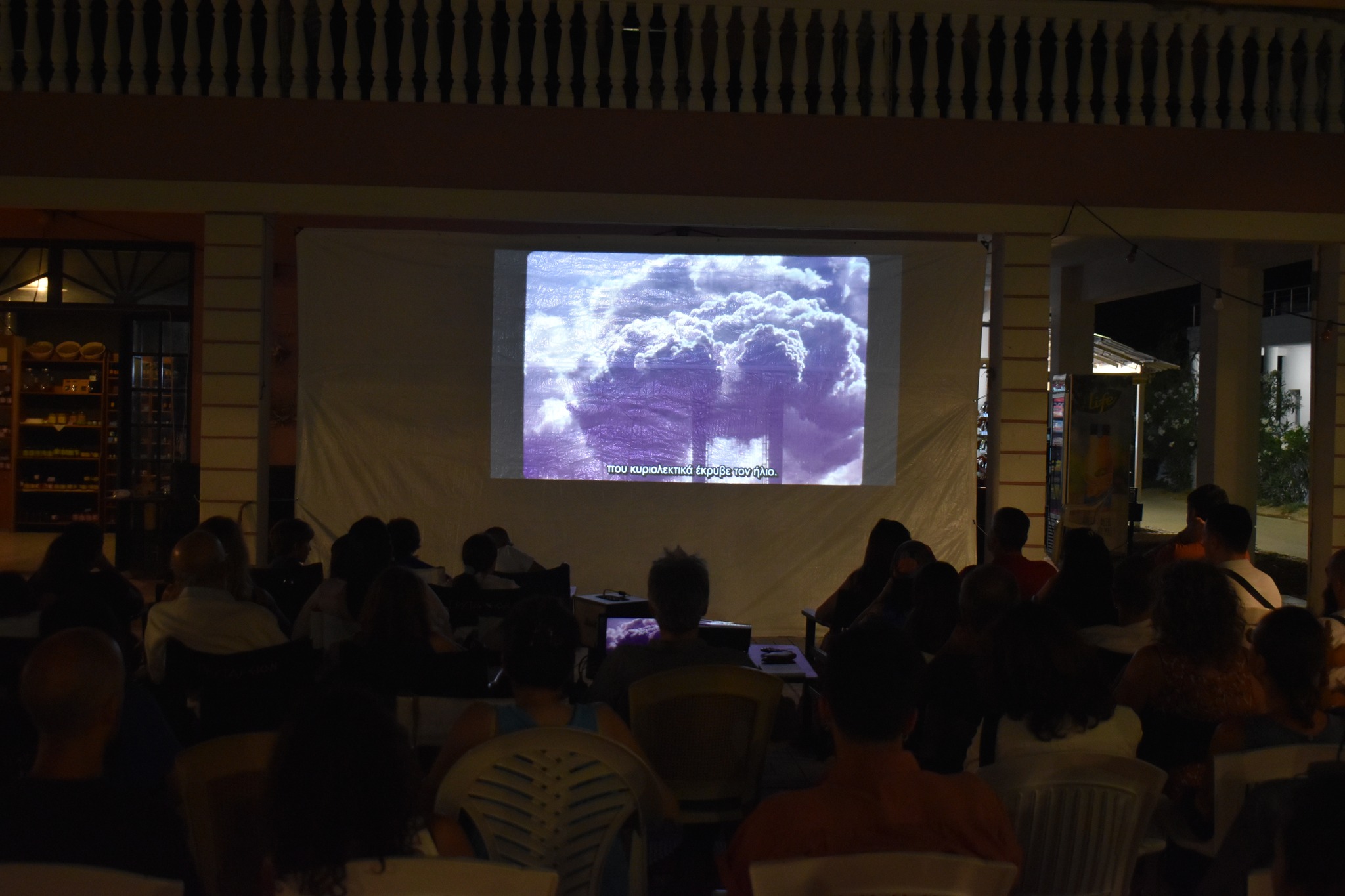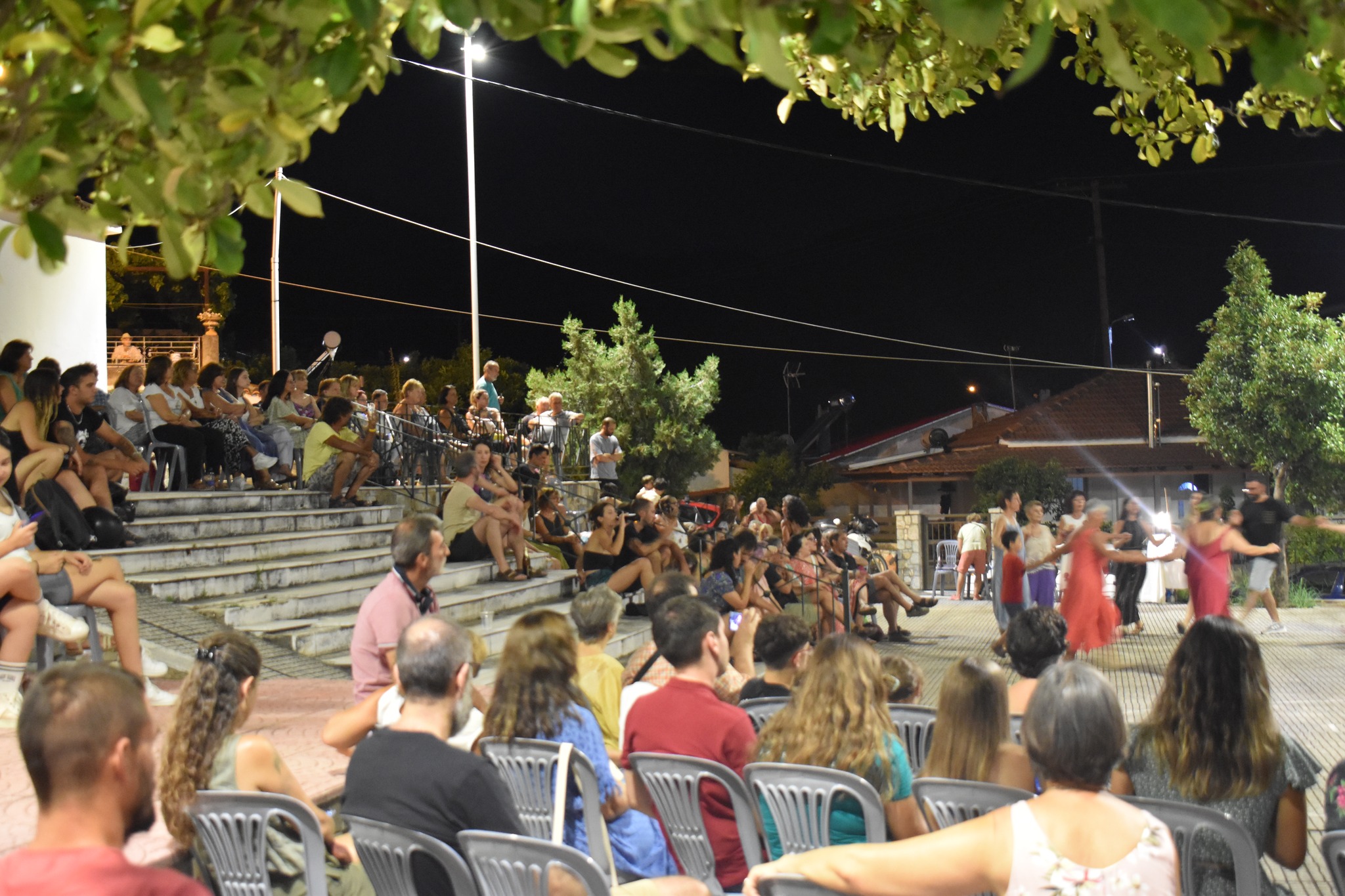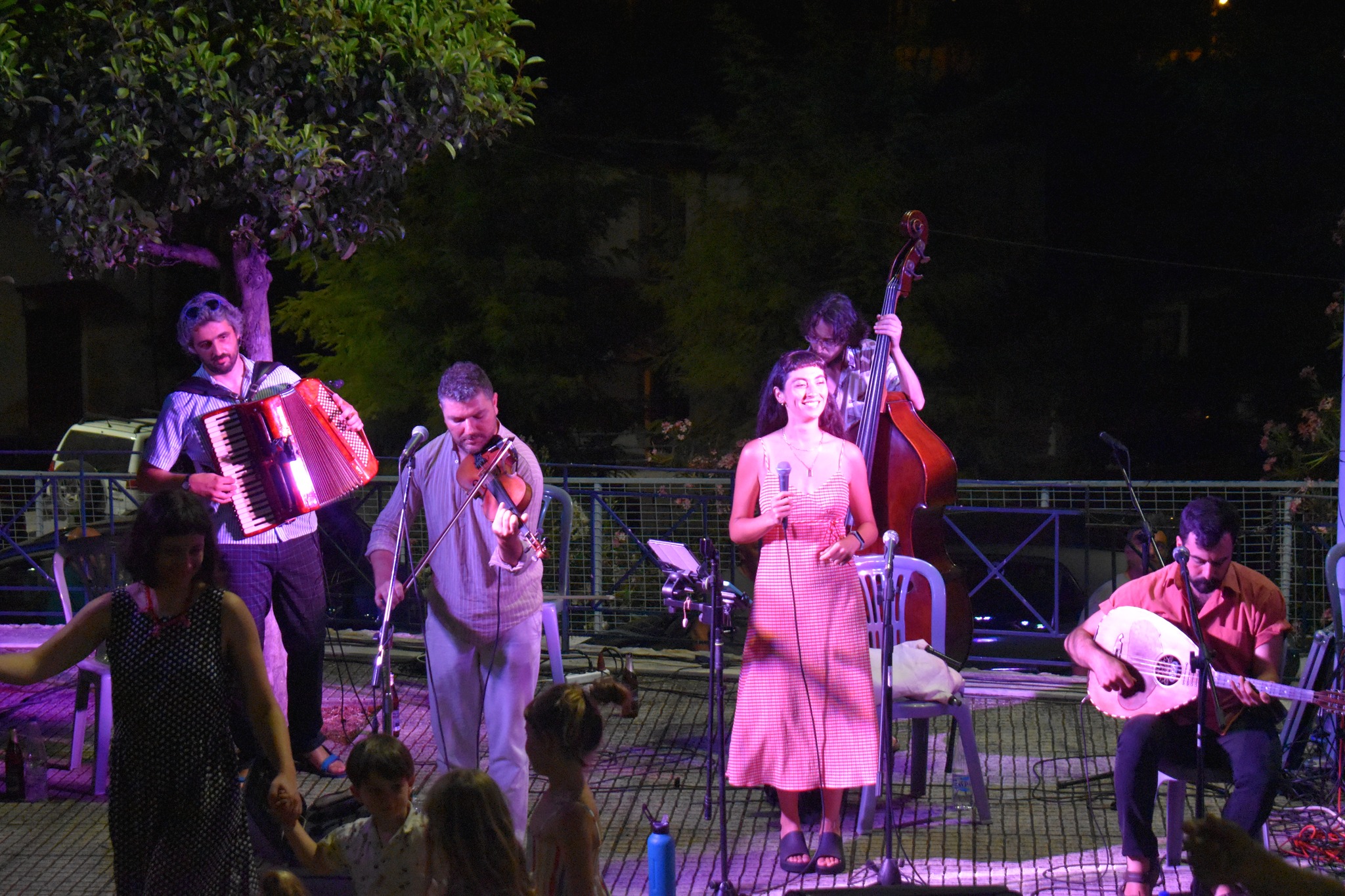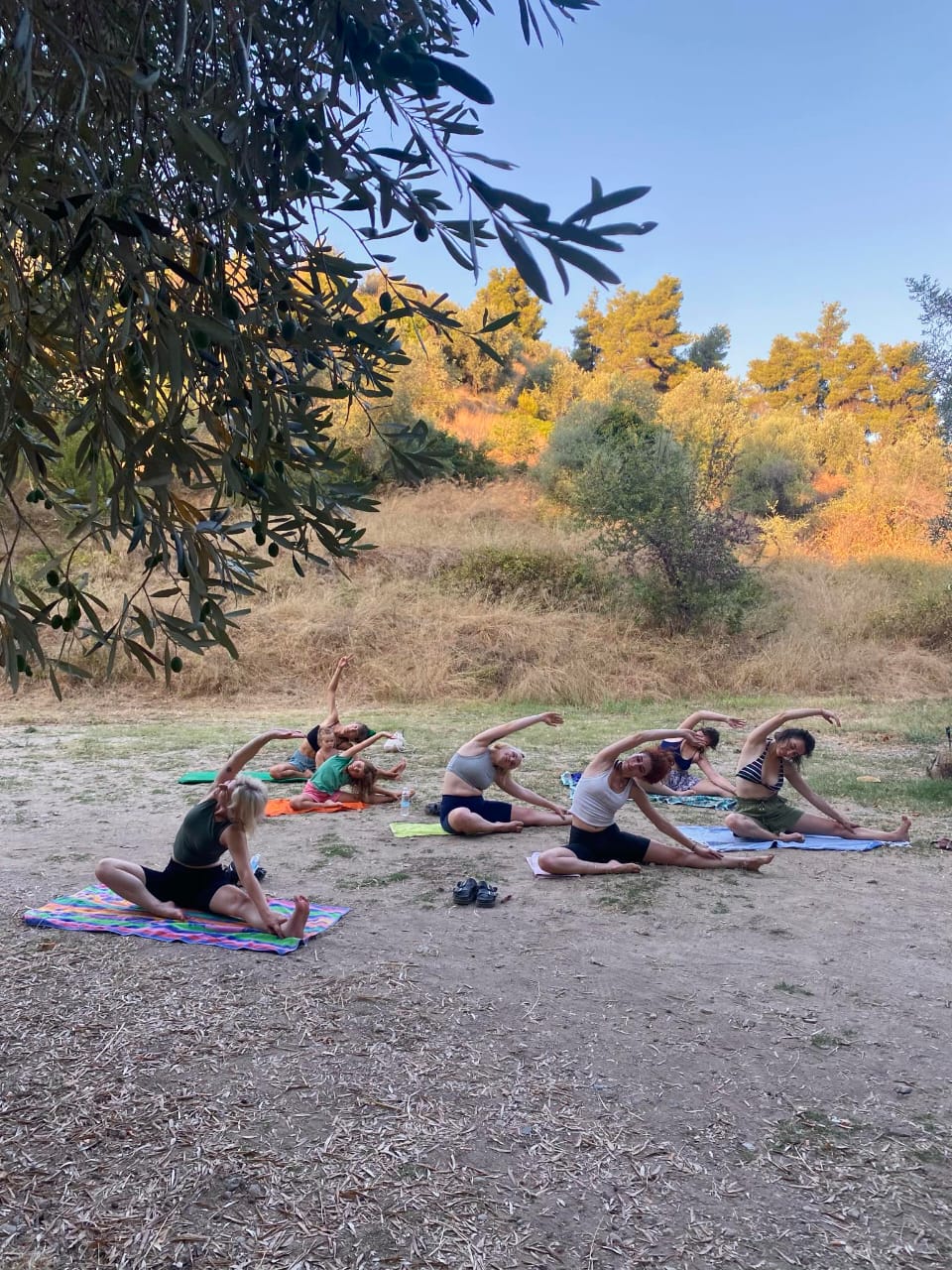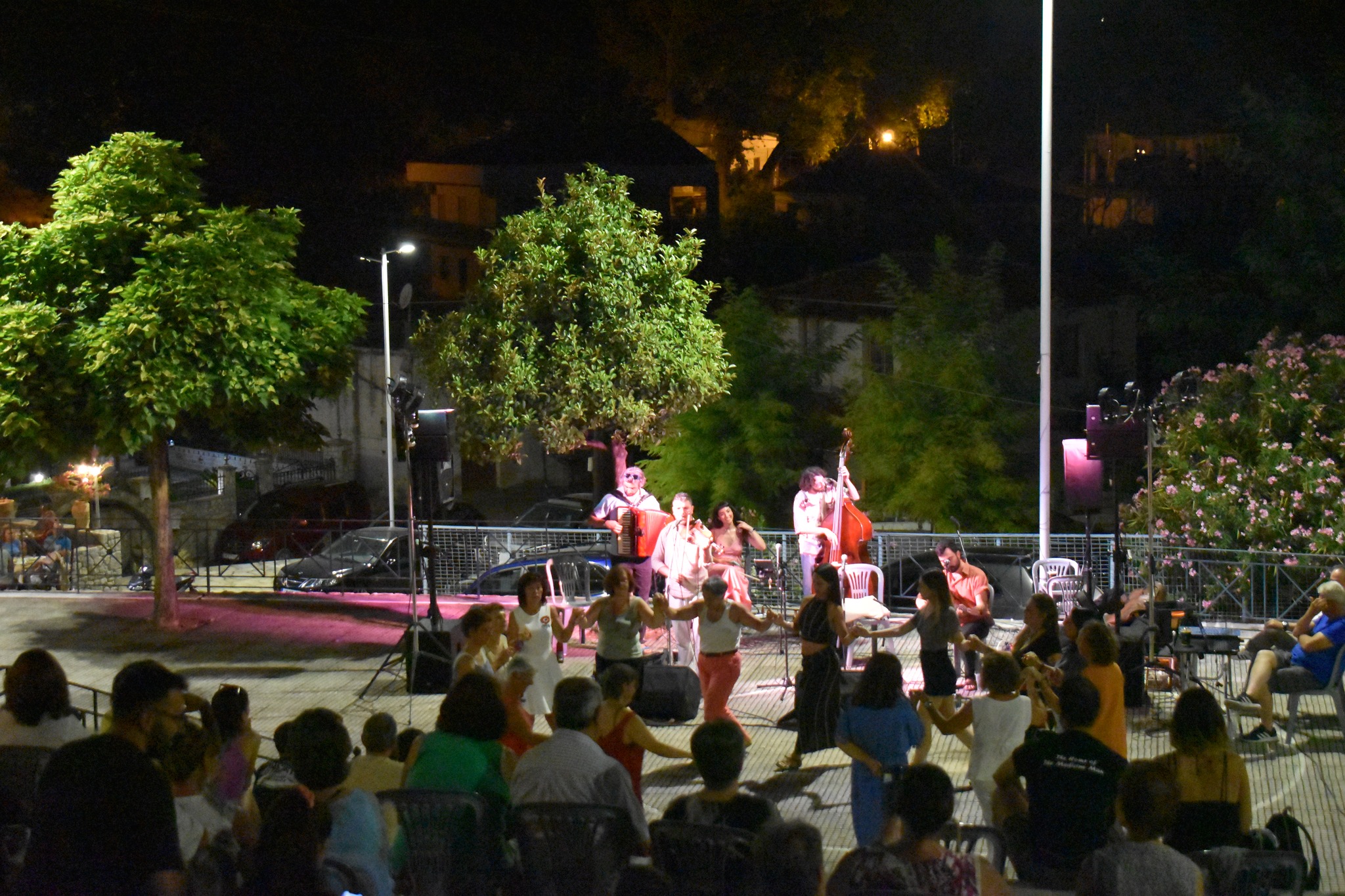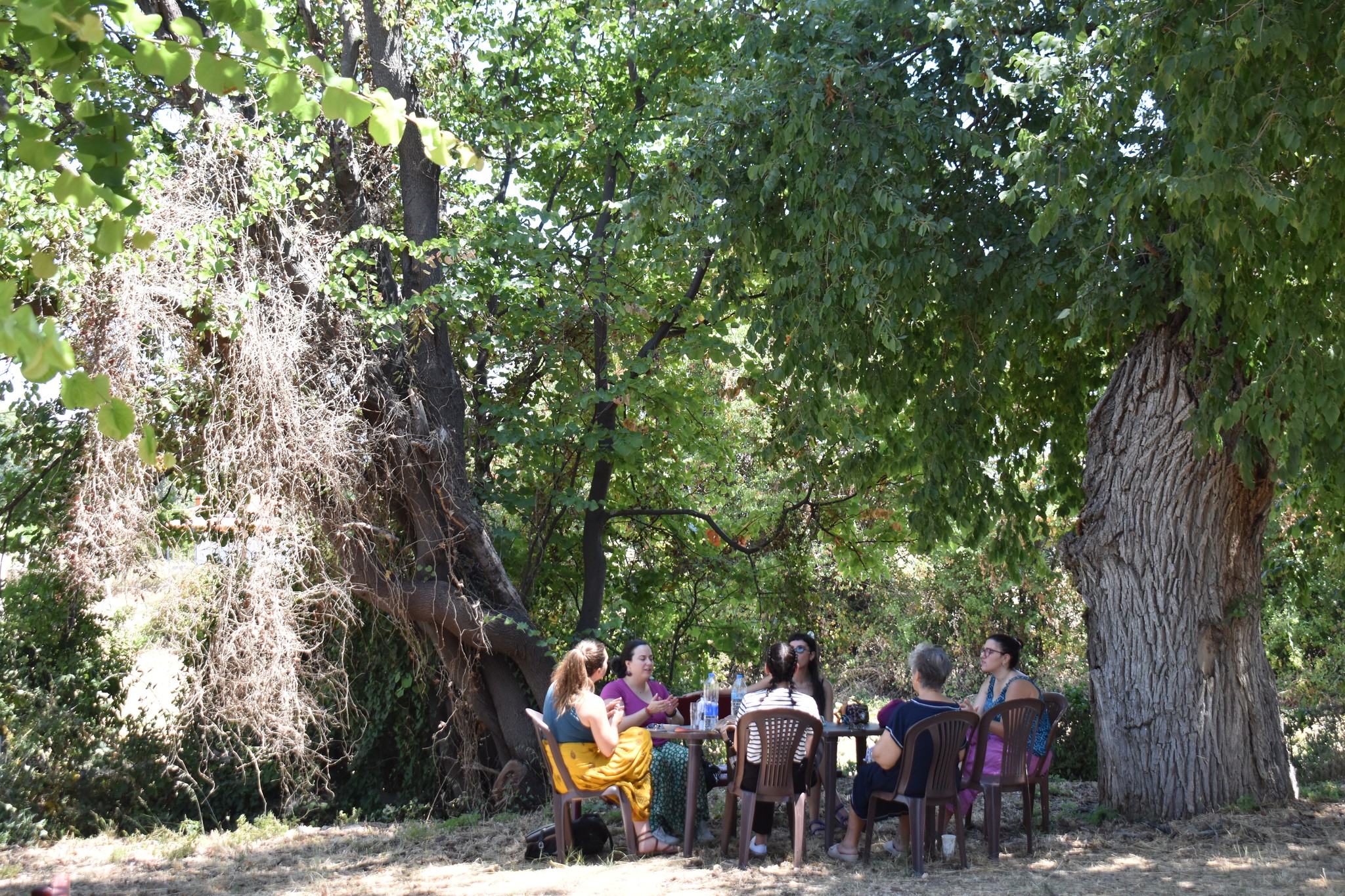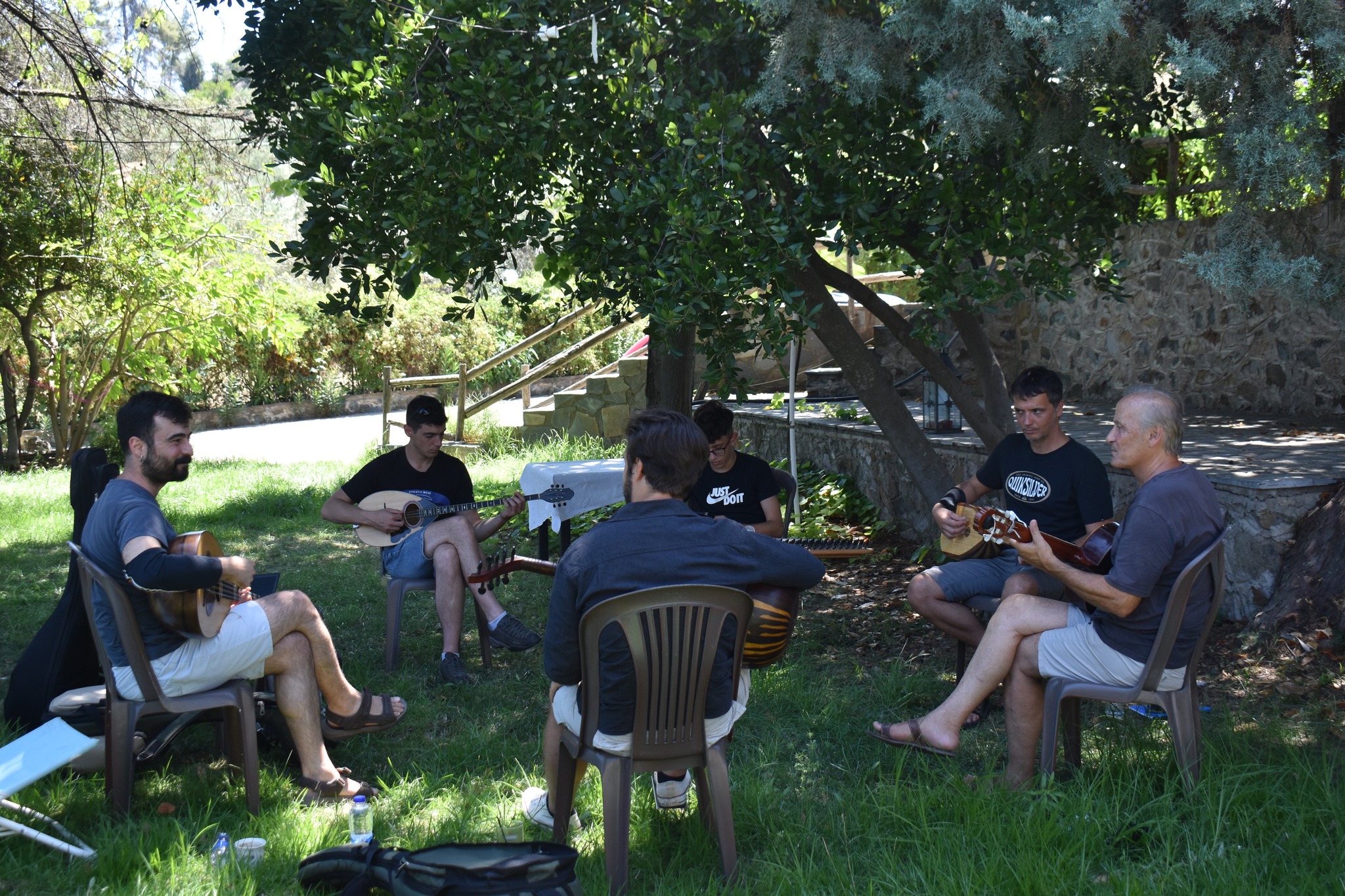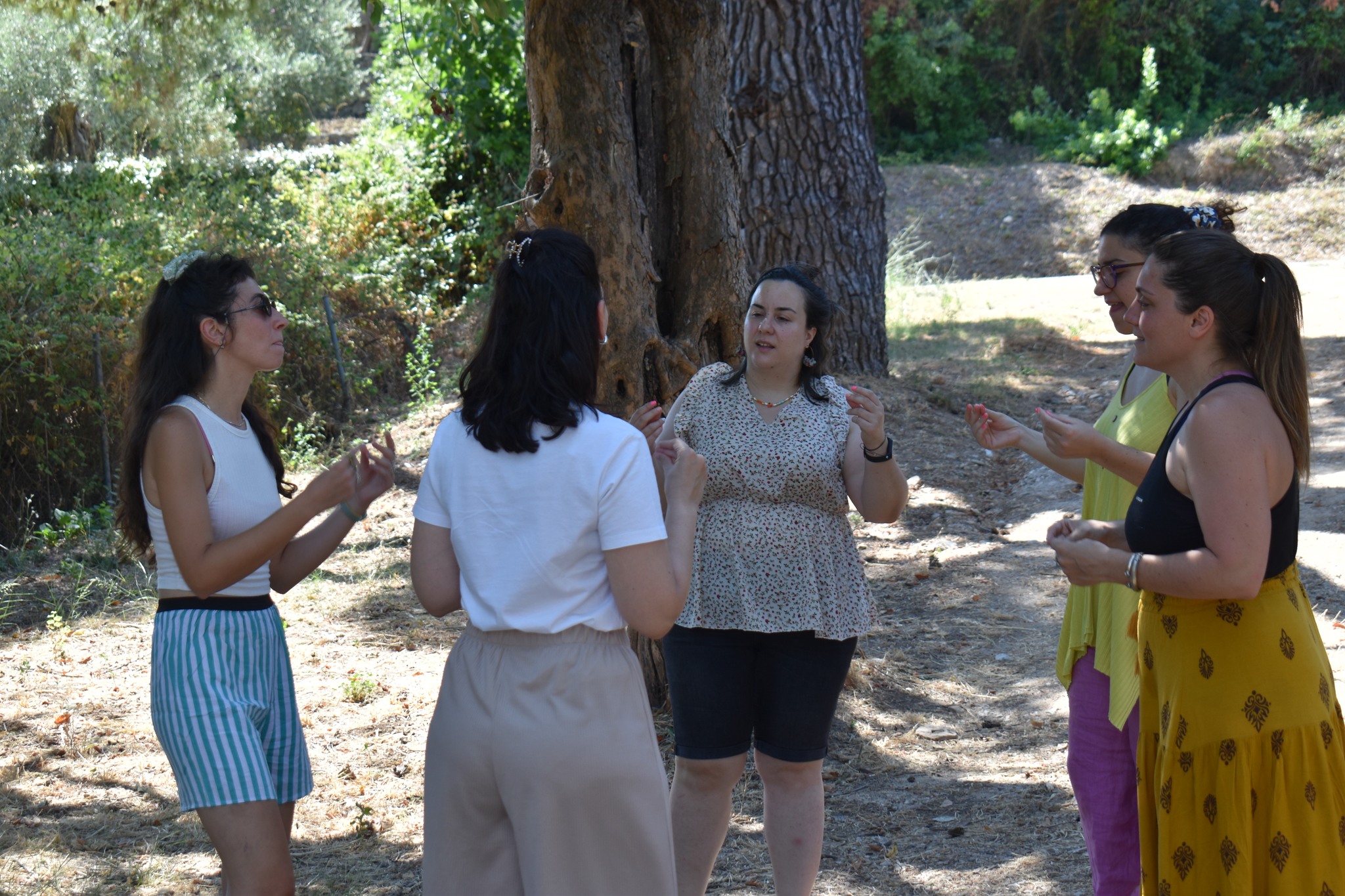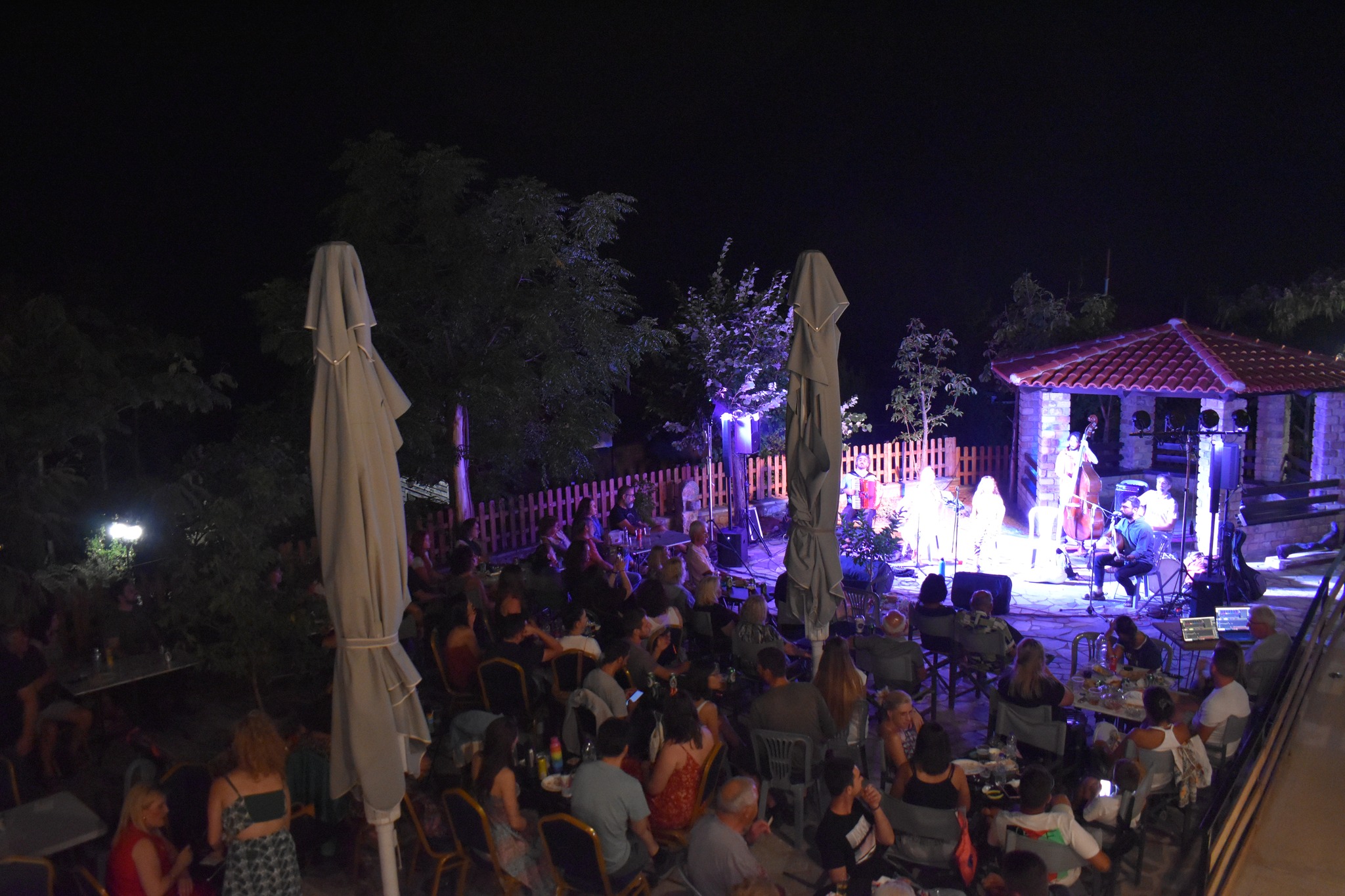Reconnecting with nature
North Evia Festival
North Evia Festival - Music till the Forest is back!
The North Evia Festival, born in response to the 2021 devastating fires, brings locals and visitors together through music, raising environmental awareness and promoting community cohesion. Moving across North Evia’s diverse landscapes, the festival celebrates the region’s culture and natural beauty with outdoor workshops, concerts, cultural activities and excursions. By engaging visitors and supporting the local community, it fosters recovery, sustainability, and unity in the heart of Greece.
Greece
Local
It was held in different locations across North Evia; In the summer of 2022, it took place in different open-air spots and public squares of Rovies and Limni Evias, and in the summer of 2024, it took place at different spots of Psaropouli Beach, Vasilika village and Evia Forest Village.
It addresses urban-rural linkages
It refers to other types of transformations (soft investment)
Yes
2024-07-20
No
No
No
As a representative of an organisation
The North Evia Festival is a cultural itinerant initiative, aimed at supporting the local community, raising environmental awareness, and fostering reconnection with nature in the wake of the devastating 2021 fires in northern Evia. Over two successful editions in 2022 and 2024, the festival has united visitors from Greece and abroad with the local community through music workshops, free outdoor concerts, cultural activities, and excursions that showcase the natural beauty of the region, targeting diverse groups, including tourists, local residents, and international participants. Key achievements include the engagement of more than 4000 attendees across both editions, active participation of the local authorities and organizations, economic support for local businesses, and the transformation of outdoor spaces into vibrant hubs of interaction, while celebrating the region’s cultural and natural assets.
Aligned with the New European Bauhaus values of sustainability, inclusion, and aesthetics, the festival highlights the intersection of environmental awareness, cultural enrichment, and community participation. By hosting concerts and workshops outdoors, the festival minimizes environmental impact while fostering a deeper appreciation of the local landscape. Accessibility and inclusivity are core principles, with activities designed to be affordable and open to all ages and abilities. The festival integrates local traditions with contemporary artistic expression, elevating cultural heritage. The use of natural outdoor venues enhances the aesthetic experience, connecting attendees to the region’s beauty and fostering a sense of responsibility toward nature. In the long term, the North Evia Festival contributes to ecological, social, and economic resilience, offering a model of sustainable and inclusive development that reconnects the audience with nature, inspiring a shared commitment to its preservation.
Aligned with the New European Bauhaus values of sustainability, inclusion, and aesthetics, the festival highlights the intersection of environmental awareness, cultural enrichment, and community participation. By hosting concerts and workshops outdoors, the festival minimizes environmental impact while fostering a deeper appreciation of the local landscape. Accessibility and inclusivity are core principles, with activities designed to be affordable and open to all ages and abilities. The festival integrates local traditions with contemporary artistic expression, elevating cultural heritage. The use of natural outdoor venues enhances the aesthetic experience, connecting attendees to the region’s beauty and fostering a sense of responsibility toward nature. In the long term, the North Evia Festival contributes to ecological, social, and economic resilience, offering a model of sustainable and inclusive development that reconnects the audience with nature, inspiring a shared commitment to its preservation.
Connection
Awareness
Sustainability
Culture/Music
Community
The key objectives of the North Evia Festival in terms of sustainability focus on environmental awareness, community engagement, and cultural preservation, all of which have been successfully integrated into its activities. One of the festival’s primary goals is to raise awareness about biodiversity, forest regeneration, and the importance of protecting natural ecosystems, particularly in light of the devastating wildfires that impacted the region. This is achieved through environmental-themed documentary screenings and informative sessions, which educate participants on the challenges of ecological conservation and inspire sustainable behavior. Additionally, the festival’s commitment to hosting all events outdoors—whether in village squares, forested areas, or along the coastline—creates an immersive experience that strengthens participants' connection with nature while minimizing environmental impact. Sustainability is embedded in the festival’s practices, from using eco-friendly materials to reducing waste and ensuring responsible event management. In this framework, it is worth mentioning that no use of plastic bottles/glasses in the framework of the festival has been made since all beverages and food purchasing has been made independently by the participants from local businesses and catering facilities. Another key aspect of the festival’s sustainability efforts is fostering community involvement, by encouraging local participation in music workshops, concerts, yoga lessons and art activities. Furthermore, the festival supports sustainable tourism and cultural preservation by showcasing the region’s natural beauty and musical traditions, fostering responsible tourism practices that benefit local businesses and artisans. Through this holistic approach, the North Evia Festival exemplifies how cultural initiatives can drive both environmental and social regeneration, serving as a model for integrating sustainability into artistic and community-driven projects.
The festival is deeply rooted in aesthetics and the enhancement of cultural experiences, creating a unique artistic journey that merges nature and art. By situating its activities in the breathtaking natural landscapes of North Evia, the festival elevates the aesthetic experience, allowing participants to immerse themselves in an environment where art and nature coexist harmoniously. The outdoor setting—village squares, forested areas, and coastal landscapes—becomes an integral part of the festival’s design, offering a sensory experience that enhances artistic appreciation and fosters a deeper connection with the surroundings. Live concerts, music workshops, and cultural activities unfold within this natural canvas, where the beauty of the region becomes both a backdrop and an inspiration for creative expression. Through carefully curated music workshops it fosters an appreciation for both the region’s cultural music heritage and contemporary artistic narratives, creating a dialogue between tradition and innovation. Additionally, by transforming everyday public spaces into dynamic artistic venues, the festival reimagines the role of the built environment in cultural life, aligning with the New European Bauhaus vision of creating beautiful, sustainable, and meaningful spaces for communities. The careful design of the festival’s programming ensures that participants engage with high-quality artistic experiences in an inspiring setting, encouraging a profound emotional and intellectual connection to both the arts and the environment. Through this holistic approach, the North Evia Festival serves as an exemplary model of how aesthetics and culture can be seamlessly integrated into public life, creating lasting impressions that extend beyond the event itself and fostering a renewed appreciation for the interplay between art, place, and human experience.
The festival embodies inclusion by creating an accessible, affordable, and participatory cultural experience that welcomes individuals from all backgrounds. Designed to foster social integration, the festival ensures that local residents, international visitors, and people of different abilities can fully engage in its activities. By utilizing public outdoor spaces such as village squares and natural landscapes, the festival eliminates barriers associated with formal venues and provides a welcoming, open environment. All activities, including concerts, art workshops, yoga sessions, and excursions, are either free or low-cost, making them accessible regardless of economic status. This commitment to affordability ensures that culture remains a shared resource rather than an exclusive privilege. The festival also prioritizes inclusive community engagement, actively involving local municipalities, organizations, and businesses in its programming and execution. This approach strengthens a sense of local ownership, ensuring that the festival reflects the values and voices of the community it serves.The festival embraces design-for-all principles by ensuring that its outdoor venues are accessible to people of all abilities. The programming is structured to accommodate diverse learning styles and levels of experience, encouraging participation from children, adolescents, seniors, and individuals with different physical and cognitive abilities. Additionally, the festival promotes a new societal model of cultural engagement—one that values collaboration over passive consumption. By inviting participants to contribute creatively, through deciding together upon their arrival where the excursions will take place, the festival transforms audiences into co-creators. As an exemplary model of inclusion, the North Evia Festival demonstrates how cultural initiatives can empower communities, enhance social cohesion, and create meaningful, accessible experiences for all.
The festival is a model of active citizen and civil society involvement, ensuring that the local community plays a central role in shaping its design and execution. Through a strong participatory process, the festival empowers local communities by including the region's two municipalities and local organizations in key decision-making stages, from proposing performance venues in village squares and natural sites to curating events that reflect their musical traditions. The impact of this model is profound, as it strengthens community ties, amplifies local voices, and reinforces the festival’s cultural and environmental objectives. Additionally, the festival’s multi-level engagement connects local citizens with national and international networks, creating opportunities for horizontal and vertical exchange. By bringing together local artists, environmentalists, and cultural practitioners alongside national and international experts, the festival fosters a collaborative ecosystem where diverse perspectives intersect. Workshops, performances, and discussions provide a platform for dialogue, allowing participants to explore innovative ways to integrate culture and sustainability. The impact of this engagement is visible in the shared knowledge and best practices that emerge, equipping the community with tools to address environmental and cultural challenges in a locally relevant yet globally informed manner. Furthermore, the festival’s transdisciplinary approach ensures that citizens are not just passive recipients of cultural experiences but active contributors to an evolving dialogue between music, arts, environmental science, and local heritage. Ultimately, the festival serves as an exemplary model of citizen-driven cultural and environmental action. It demonstrates how inclusive governance and multi-level collaboration can create long-term societal transformation, fostering both cultural enrichment and environmental awareness.
The North Evia Festival demonstrates a highly collaborative and multi-level approach to stakeholder engagement, drawing on local, regional, and national contributions to ensure its success. At the local level, the festival is deeply rooted in the community, with residents, artists, the municipalities (Municipality of Istiea-Edipsos, Municipality of Mantoudi-Limni-Ag.Anna), organizations ("Commercial Association of Rovies, Evia", the "Forest Festivals", the "Forest Voice"), and businesses (social cooperative enterprise "Amal Evia", "Caming of Rovies", "Hotel Orama", "Evia Forest Village" and "Xoutka multifield"), playing an integral role in its design and execution. From selecting performance venues like village squares and outdoor areas (both public and private) to hosting workshops and cultural activities, locals are active participants at every stage. The impact of this involvement is significant, as it enhances community cohesion and helps promote the region’s cultural and natural identity. On the regional level, local media and tourism organizations are vital to the festival’s promotion, assisting with its advertising, thus fostering the festival’s visibility and awareness raising about North Evia’s ecological recovery after the 2021 wildfires. At the national level, partnerships with private cultural institutions, such as the DIAZOMA Association in the framework of its Reconstruction Program of North Evia, called "Evia Meta", and the J.F. Costopoulos Foundation amplifies the festival’s impact through these stakeholders' financial support, positioning the event as a key player in national cultural and sustainability initiatives.The collective engagement of stakeholders at all levels ensures the festival is well-resourced, inclusive, and sustainable, making it an exemplary model for cultural and environmental sustainability.
The North Evia Festival is a compelling example of how various disciplines and knowledge fields can converge to create a culturally rich and environmentally sustainable event. Music and the arts lie at the core of the festival, where artists share their creative expressions, contributing to the festival’s program with concerts, music workshops and cultural events (mosaic workshop, documentary screening). Complementing this, environmental activists and ecology experts bring vital knowledge about biodiversity, ecosystem regeneration, and the environmental challenges faced by the region, particularly after the 2021 fires, through informative sessions, excursions, and documentary screenings, connecting the cultural experience to the environmental significance of the area. Experts in cultural management and sustainable management contribute by promoting eco-friendly practices (0 plastic use), focusing on sustainable tourism, and integrating green spaces within the festival's design, ensuring the event is environmentally responsible while supporting local economies. Social scientists ensure that the festival remains inclusive and accessible to all, emphasizing participatory processes and social cohesion, and ensuring that local residents actively shape the festival, while tourism specialists contribute by helping integrate local businesses, ensuring that the festival’s economic impact benefits the community. These diverse disciplines interact in a collaborative planning process, where cultural and environmental education merge in shared programming and joint events, fostering creativity and innovation. The added value of this multidisciplinary approach is a holistic understanding of sustainability, where art, science, and community development converge. The interaction between these fields encourages creativity, enhances knowledge-sharing, and fosters a shared vision for a sustainable future.
The North Evia Festival stands out as an innovative cultural and environmental initiative, setting itself apart from mainstream festivals through its holistic approach that integrates art, sustainability, community engagement, and environmental awareness. Unlike traditional events that treat cultural programming and environmental concerns separately, the festival uniquely combines both by using music as a platform to raise awareness about environmental issues. Through music workshops, concerts, yoga and cultural activities, it attracts visitors and educates them, through additional screenings and informative sessions on the environmental challenges faced by North Evia after the 2021 fires. The festival’s participatory model further distinguishes it, as it actively involves local communities in the planning and implementation process, giving them a voice in shaping the event. This bottom-up approach fosters empowerment and strengthens the bond between the local community and the festival, making it more inclusive and relevant than top-down cultural events. Sustainability is another core principle, with the festival prioritizing eco-conscious practices in everything from outdoor activities and green event infrastructure to promoting sustainable tourism and supporting local businesses. By embedding sustainability in its core structure, the festival exemplifies how cultural events can highlight environmental awareness and encourage responsible tourism. Additionally, the festival offers immersive, experiential learning opportunities, inviting attendees to engage directly with nature through workshops and excursions, fostering a deeper connection to the environment. Finally, the festival goes beyond short-term cultural celebration by highlighting the importance of cultural preservation and environmental consciousness for the long term, encouraging ongoing reflection and responsibility for both the region’s culture and natural landscape.
The North Evia Festival’s methodology is built on a participatory, sustainable, and inclusive approach, designed to create a meaningful cultural and environmental experience for both the local community and visitors. Key to its success is the festival’s itinerant nature, moving from location to location each year to support various areas of North Evia, especially in response to the 2021 fires. By engaging local residents, visitors, artists, authorities, organizations and businesses in co-creation, the festival ensures that it meets the cultural needs and identities of each area it visits, fostering a sense of ownership and shared responsibility.
Sustainability is at the heart of the festival's methodology, with eco-friendly event planning that minimizes waste and resource use. Activities such as outdoor workshops, concerts, and excursions are designed to highlight environmental awareness, emphasizing the ongoing recovery efforts of the region’s natural spaces. These activities are not only educational but also create hands-on experiences that help participants connect with the environment.
The festival’s inclusive approach ensures that it is accessible to people of all backgrounds and abilities, with free concerts and excursions, as well as affordable workshops. This inclusivity fosters a sense of belonging and allows all members of the community, both local and from abroad, to participate. Additionally, the festival promotes local cultural heritage by showcasing traditional music, while encouraging contemporary artistic expressions.
Overall, the festival’s immersive, experiential approach enables deeper connections with nature, making it a catalyst for both cultural and environmental awareness. By moving from place to place, the festival supports different communities, amplifying its long-term social, cultural, and environmental impacts across the northern part of the island.
Sustainability is at the heart of the festival's methodology, with eco-friendly event planning that minimizes waste and resource use. Activities such as outdoor workshops, concerts, and excursions are designed to highlight environmental awareness, emphasizing the ongoing recovery efforts of the region’s natural spaces. These activities are not only educational but also create hands-on experiences that help participants connect with the environment.
The festival’s inclusive approach ensures that it is accessible to people of all backgrounds and abilities, with free concerts and excursions, as well as affordable workshops. This inclusivity fosters a sense of belonging and allows all members of the community, both local and from abroad, to participate. Additionally, the festival promotes local cultural heritage by showcasing traditional music, while encouraging contemporary artistic expressions.
Overall, the festival’s immersive, experiential approach enables deeper connections with nature, making it a catalyst for both cultural and environmental awareness. By moving from place to place, the festival supports different communities, amplifying its long-term social, cultural, and environmental impacts across the northern part of the island.
The festival incorporates several elements that are highly transferable and replicable in diverse regions, communities, and contexts. Key aspects of the festival's methodology, such as participatory design, sustainable practices, and interdisciplinary activities, offer adaptable models that can be applied in different settings. The festival’s participatory approach, which involves local communities in co-designing and co-creating the event, can be replicated in other areas facing challenges such as environmental regeneration or cultural revitalization. The festival’s commitment to sustainability is another transferable element, with eco-friendly event practices—such as using local materials, minimizing waste—serving as a blueprint for other environmentally conscious events. This model is particularly suitable for areas focused on sustainable tourism or nature conservation, where similar practices can be adopted to reduce ecological footprints.
Moreover, the festival’s interdisciplinary approach, combining art and ecology can be replicated in regions looking to foster a deeper connection to nature through creative experiences. Workshops and activities that integrate environmental themes with artistic expression could be tailored to regions facing environmental challenges, from climate change awareness to biodiversity conservation. The festival's emphasis on inclusion—making events accessible to all, regardless of background, ability, or income—ensures broad participation, a practice that can be adopted in areas with marginalized communities or social disparities. The immersive nature-based tourism approach can also be replicated in rural areas with ecologically rich landscapes, helping promote sustainable tourism while protecting natural resources. Finally, its success in fostering partnerships between local, regional and national stakeholders is a model that can be replicated in other regions aiming to create synergies between cultural and environmental sectors.
Moreover, the festival’s interdisciplinary approach, combining art and ecology can be replicated in regions looking to foster a deeper connection to nature through creative experiences. Workshops and activities that integrate environmental themes with artistic expression could be tailored to regions facing environmental challenges, from climate change awareness to biodiversity conservation. The festival's emphasis on inclusion—making events accessible to all, regardless of background, ability, or income—ensures broad participation, a practice that can be adopted in areas with marginalized communities or social disparities. The immersive nature-based tourism approach can also be replicated in rural areas with ecologically rich landscapes, helping promote sustainable tourism while protecting natural resources. Finally, its success in fostering partnerships between local, regional and national stakeholders is a model that can be replicated in other regions aiming to create synergies between cultural and environmental sectors.
The festival addresses several global challenges by providing localized solutions that tackle pressing issues such as environmental degradation, climate change, biodiversity loss, social inclusion, and cultural preservation. These challenges are met with targeted actions in the local context of North Evia, where the festival was born in response to the devastating wildfires of 2021. One of the key global issues it addresses is climate change and environmental degradation, particularly through raising awareness of the region's vulnerability to wildfires through informative sessions, nature-based excursions, and documentary screenings. With a focus on the biodiversity-rich forests of North Evia, it offers ecotourism excursions that encourage participants to recognize the importance of protecting and regenerating local ecosystems, providing a model for other regions facing similar challenges. Social inequality is another global issue the festival addresses by ensuring inclusivity and accessibility. By offering affordable participation and free public events, the festival bridges social divides and fosters community cohesion, making cultural opportunities available to all. Cultural preservation is also central to the festival, which promotes local music traditions through concerts and workshops that celebrate the region's heritage. By encouraging cultural exchange, the festival helps to preserve the identity of North Evia, offering a counterpoint to the homogenizing effects of globalization. Additionally, the festival promotes sustainable tourism as a solution to global challenges. By integrating eco-conscious tourism, it supports local economic development, offering a model for sustainable tourism that other regions can replicate. In sum, the festival provides a comprehensive response to global challenges through local solutions, offering a fully replicable model.
The festival is an exemplary project in the "Reconnecting with Nature" category, with impacts in environmental awareness, community engagement, and social inclusion. Centered on the support of the local community after the devastating 2021 wildfires, the festival offers a platform for fostering a deeper connection between people and nature, while encouraging local and global participants to reconsider their relationship with the environment. By integrating nature-based solutions, such as excursions and sustainability-focused documentary screenings and open discussions, the festival emphasizes the high importance of nature and the protection of biodiversity. Participants engage directly with the natural beauty of North Evia, witnessing firsthand the importance of restoring forests and protecting the local environment. The festival also champions social inclusion by offering accessible and affordable cultural activities for all, including marginalized groups such as people with disabilities, seniors, and low-income families. By offering free public concerts and ensuring all workshops are accessible, the festival promotes social cohesion and community empowerment. This participatory approach, especially in co-creating the event with local authorities and organizations, encourages a sense of belonging and pride in the community, especially in the aftermath of the traumatic fires.
Economically, the festival has supported sustainable tourism and local businesses by attracting visitors to North Evia, promoting eco-tourism, and enhancing the region’s musical heritage. This contributes to both environmental awareness and economic regeneration. Furthermore, the festival fosters cultural preservation by incorporating local traditions and crafts into workshops. Overall, the North Evia Festival provides a model for using nature-based, inclusive, and sustainable initiatives to reconnect people with their environment and contribute to a life-centered perspective on nature.
Economically, the festival has supported sustainable tourism and local businesses by attracting visitors to North Evia, promoting eco-tourism, and enhancing the region’s musical heritage. This contributes to both environmental awareness and economic regeneration. Furthermore, the festival fosters cultural preservation by incorporating local traditions and crafts into workshops. Overall, the North Evia Festival provides a model for using nature-based, inclusive, and sustainable initiatives to reconnect people with their environment and contribute to a life-centered perspective on nature.

